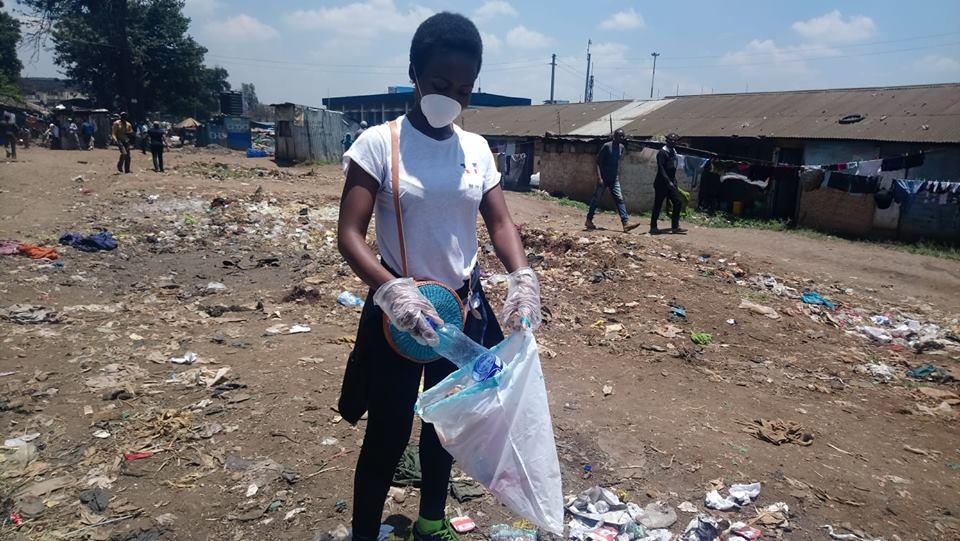The world is living in a state of multiple crises; climate crisis, plastic crisis, health crisis and social crisis. Today, globalisation connects almost every part of the planet through a series of well-established trade routes. This presents us with great opportunities to collaborate and enable meaningful cooperation to address most of these challenges that we are faced with. But, it also presents us with a much greater challenge of transferring the negative impacts of unsustainable practises to the remotest part of the planet, exacerbating problems that many societies may already be struggling to overcome; inequalities, exclusion, resource constraints and pollution.
Many communities are facing a plastic crisis. A recent United Nations report found society’s most vulnerable are impacted the worst by environmental injustice caused by plastic pollution. However, for the first time in history, consideration of a future global plastic treaty to tackle the plastic crisis is on the table. More countries than ever are backing this process, but profit driven interests at the expense of people’s wellbeing from corporations could obstruct an effective treaty.
Africa is grappling with the impacts of the plastic crisis. In many of the urban areas in Africa, plastic waste is clogging the waterways leading to floods and destruction. Plastic pollution is overflowing our landfills. Our oceans and rivers are filled with plastics.
Kenyans too have had their fair share of pressure from the plastic and petrochemical industry Kenya and the United States (US) are currently engaged in talks on a proposed Free Trade Agreement. However, the American Chemistry Council has been lobbying to use the US-Kenya trade deal to expand the plastics industry’s footprint across Africa. Essentially lobbying for Africa states including Kenya to open up themselves as dumping sites for their plastic waste?
Africa is at the forefront of the war on plastics, with 34 out of 54 countries having adopted some regulation to phase out single-use plastics. Kenya passed one of the toughest laws on the production, sale, and use of plastic bags in 2017, and recently expanded on it to outlaw plastics in protected areas. These efforts are under threat, as demonstrated in the proposal by the American Chemistry Council in the on-going US-Kenya Free Trade Agreement debacle.
It is disappointing that neither Kenya nor the US has yet to publicly support the development of the pioneering global plastic treaty agreement. And, South Africa has shown an unfavourable position toward it too. African countries need to be firm and protect the future of its people and ensure a thriving sustainable future for communities by supporting the development of this global agreement aimed at addressing the challenges of the plastic crisis – especially since threats such as those posed by the ACC affect most African countries, not just Kenya.
Similarly, the proposal for a global plastic treaty presents the new US administration a key moment to make sure that the US is not a barrier to this global effort. The US administration needs to demonstrate leadership by declaring that it will not support any trade agreement that will dump plastics on communities around the globe, including Africa. The recent surge of illegal dumping in Africa is completely unacceptable.
Plastic pollution is a transboundary issue and goes beyond national borders. This makes it important for all African countries to support this global response to enable them to gain from the efforts that are already in place. Supporting a global plastic treaty will enable African countries to tackle challenges such as influx of plastics from other regions through actions like the US-Kenya Free Trade Agreement.
All across Africa, plastic pollution remains a serious problem, devastating communities’ health, their environment and the ecosystem that millions depend on for livelihood. Plastics are entering our oceans and environments at unprecedented rates. Animal and plant species are being affected by plastic waste. Our precious ecosystems are hurting. In the oceans, plastic breaks down into microplastics entering marine species’ food chains, damaging sea life and impacting the health of consumers. On land, wildlife is not immune to plastic’s impacts where consumption of these products can be hazardous. For communities, the effects of plastic waste are equally harmful, blogging river ways and provoking flooding among other huge environmental discomforts.
African governments must commit to promoting local zero waste solutions, create decent and just jobs for the people and ensure improved quality of life for Africans. These commitments need to move away from interventions that continue to perpetuate the current systemic failures such as plastic waste imports. There is a need for the African countries to protect their communities from the existing injustices in the plastic waste management system where those who are least responsible and marginalised communities suffer the consequences of the plastic waste crisis.
African leadership has the power to enable the change that is needed to address the challenges presented by the global plastic crisis. Cooperation across Africa is needed in forging a strong fight for a plastic-free future. This treaty is an opportunity for our leadership to truly demonstrate the commitments they have made to addressing plastic pollution on the continent, and to show that they are truly on the side of the people.
By Amos Wemanya
Greenpeace Africa Campaigner
This opinion piece was originally published in The Standard newspaper on 4 August 2021.
 Get Involved
Get Involved
